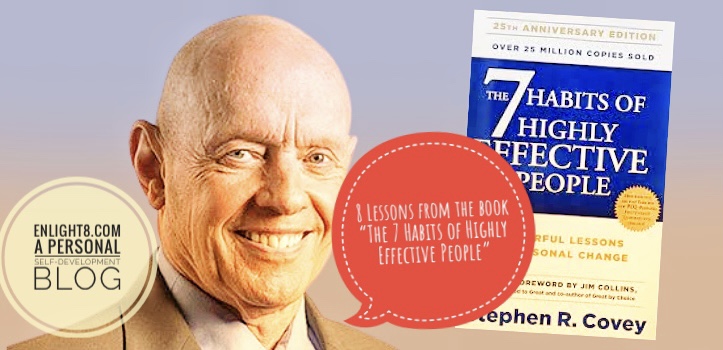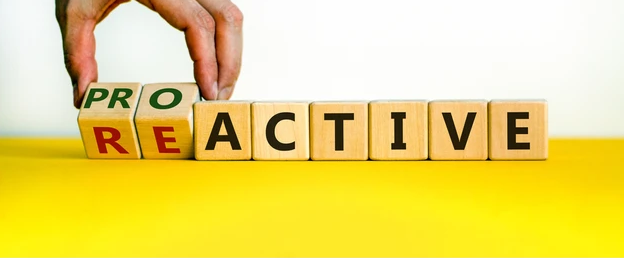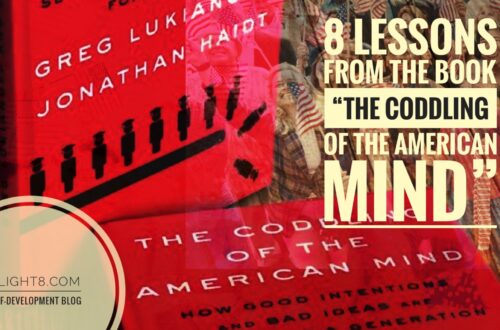
8 Lessons from the Book “The 7 Habits of Highly Effective People” by Stephen Covey
There’s one self-development book that has profoundly shaped the way I think of life, success, and productivity. The book is “The 7 Habits of Highly Effective People” by Stephen R. Covey. Covey’s self-help tome has become widely popular and influential in the modern age since its 1989 publication, translated into over 40 languages, and it has become a classic.
When I read this book during college, I had an epiphany about how a productive, effective person could be, and it created a framework for personal and professional success based on seven fundamental habits.
Stephen Covery’s book, “The 7 Habits of Highly Effective People“
When I first read the book, I was at a loss as a young adult, and I felt that Covey was a mentor who was directly talking to me. The book provided a new perspective and practical tools and strategies that can be applied across various parts of my life. I read this book and took the tools and new ideas and still continually go back to it to refresh myself.
Here are eight lessons I learned from Stephen Covey’s book, “The 7 Habits of Highly Effective People.”
1. Being Proactive Means Taking Full Responsibility for Your Actions and Choices

The first foundational habit in the book is to be proactive. This habit is one of the hardest because it requires a fundamental shift in thinking, taking full responsibility for everything that happens to us, all our actions, and all our choices every time. This thinking means that rather than reacting to external circumstances, we look within and take responsibility for how we choose to act from the stimulus.
Becoming proactive is the very first habit described in Stephen R. Covey’s book “The 7 Habits of Highly Effective People.” According to Covey, proactive people take responsibility for their actions and choices rather than reacting to external circumstances. Proactive people recognize that we have the power to shape our own lives and the world around us and that we can take action to change.
The concept of being proactive is based on the idea that there are two types of responses to problems and challenges: a proactive response and a reactive response. A proactive response involves taking the initiative, being proactive, and actively seeking out solutions to problems. On the other hand, a reactive response involves simply reacting to problems and circumstances as they arise rather than taking control and shaping the outcome.
“Between stimulus and response, there is a space. In that space is our power to choose our response. In our response lies our growth and our freedom.”
— Viktor E. Frank
Stephen Covey emphasizes that being proactive is essential for personal and professional success because it enables us to take control of our lives rather than being controlled by external circumstances. It also allows us to exercise our creativity and resourcefulness in finding solutions to problems and achieving our goals.
2. Begin With The End In Mind: Set Clear Goals + Achieve Them

I remember reading about the second habit and having a vision of the story of “The Christmas Carol” where the main character meets the “ghost of Christmas yet to come” where Scrooge saw his own grave. The second habit fast-tracks us into our future selves, where we need to visualize exactly how we would have wanted to live our lives and leave the earth.
“Begin with the end in mind” is a habit that involves setting clear goals and planning how to achieve them. It involves taking a long-term perspective and considering the ultimate outcomes or results we want. In a sense, how do we want to live our lives? What do we want to do so that at the end of our life, we can say that we lived successfully?
According to Covey, beginning with the end in mind involves developing a clear vision of what we want to accomplish in our personal and professional life. It also involves setting specific, measurable, achievable, relevant, and time-bound (SMART) goals to help us stay focused and on track.
The idea behind this habit is that by starting with the end in mind, we can create a roadmap for success and make better decisions along the way. It helps us stay focused on what is most important rather than getting sidetracked or reacting to the demands of the moment. It also helps us to create a sense of purpose and meaning in our life, which can be motivating and energizing.
3. Put First Things First: Prioritization Is Key To Effectiveness
“Put first things first” is the third habit described in Stephen R. Covey’s book “The 7 Habits of Highly Effective People.” In the second habit, we learn to create a roadmap of our goals. This third habit is a way for us to start implementing tasks to achieve our goals. And the best way to achieve our goals effectively is to prioritize.
The habit of “Putting first things first” means prioritizing tasks and activities based on their importance and value.
This habit involves prioritizing tasks and activities based on their importance and value. It involves being proactive and intentional about allocating our time, energy, and resources rather than simply reacting to the demands of the moment.
According to Covey, putting first things first involves establishing a clear sense of priorities and setting boundaries around our time and energy. It also involves being proactive and intentional about our choices rather than simply reacting to the demands of others. This habit requires us to be disciplined and self-controlled and to make conscious choices about how we spend our time.
The idea behind this habit is that we can focus on what is most important and make the most of our time and resources by putting first things first. It helps us to prioritize our goals and priorities and to make better use of our limited time and energy. It also helps us to avoid becoming overwhelmed or stressed by the demands of life and to achieve greater balance and fulfillment in our life.
5. Seek First to Understand, Then to be Understood

The fifth habit of seeking first to understand, then to be understood lies in the idea of active listening, which I have written about in “How to Master the Art of Active Listening” before, and also in emphatically understanding someone’s point-of-view and perspective first.
Stephen Covey introduces the concept of “seek first to understand, a concept that refers to the idea that effective communication involves actively listening to and trying to understand the perspective of others before attempting to communicate our own thoughts and ideas.
It emphasizes the importance of seeking to understand others’ points of view and needs rather than just focusing on our own perspectives and trying to convince others to see things our way.
The idea is that by seeking first to understand, we can create a more collaborative and respectful environment in which everyone’s needs and perspectives are considered and respected. This can lead to more productive and effective communication, as it helps to build trust and mutual understanding between people.
In the context of the book, “seek first to understand, then to be understood” is presented as a key habit for achieving personal and professional effectiveness and success, as it helps individuals to build strong, productive relationships and to work effectively in teams and organizations.
6. Synergy is Working Effectively With Others To Achieve The Greatest Results
Stephen Covey, introduces the concept of “synergize” as one of the seven habits of highly effective people. This habit emphasizes the skill sets we need to interact and work with others effectively to get things done.
The concept of “synergize” refers to the idea of working together in a way that combines the strengths and abilities of individuals to achieve a greater result than could be achieved by any one person working alone. It involves a willingness to collaborate and cooperate with others and to value and utilize the unique contributions of each team member.
We can achieve synergy through the process of creative cooperation, when individuals from different backgrounds with different skills and expertise come together to work, brainstorm ideas, and come up with innovative solutions to problems. When we work together in a way where we treasure and respect our differences, we can generate new ideas and approaches effectively and efficiently compared to any one person or individual.
“Synergize” is a key habit for achieving personal and professional effectiveness and team success, it helps us build strong, productive relationships in our personal and work life. A diverse group’s strengths, creativity, and effort can produce greater results than the sum of each individual contribution.
7. Sharpen the Saw Means Physical, Mental, Emotional, and Spiritual Self-Care

The seventh and last habit is the pillar of every other habit, which is to ensure we take care of our physical, mental, emotional, and spiritual well-being to maintain our effectiveness. I also wrote about self-care habits in “8 Self-Care Habits of Rich and Successful People” here.
The concept of “sharpen the saw” refers to the idea of taking regular breaks and investing in our own personal development and well-being in order to maintain and improve our effectiveness and productivity over the long term. Covey describes using a blunt knife to cut; when we sharpen the saw, the knife can cut more precisely and effectively.
Self-care includes balancing and renewal of the four key areas of our being: physical, mental, social and emotional, and spiritual.
When we regularly take the time to recharge and invest in ourselves, we avoid burnout and can maintain the highest level of productivity and effectiveness. This involves activities such as physical exercise, spending time with loved ones, engaging in mental activities that challenge and stimulate our minds, and participating in activities that nourish our soul and a sense of purpose.
“Sharpen the saw” is a key habit for achieving personal and professional effectiveness and success, as it helps us to maintain our physical, mental, emotional, and spiritual well-being and to sustain our effectiveness over the long term.
8. Key Takeaways

In addition to the seven habits that are the focus of the book “The 7 Habits of Highly Effective People,” there are several other key lessons that we can take away from the book. Some of these include
- Take personal responsibility. The lessons in the book emphasize over and over again that taking personal responsibility for our own life and actions is crucial to becoming proactive. We can take full responsibility for our goals, circumstances, and results.
- Having a growth mindset is vital to cultivate. A growth mindset is having the belief that we can continue to learn and grow throughout our lives and that skills are not set. We can approach challenges and setbacks as opportunities to improve, grow, and learn to become better, and we see failures as motivators to learning.
- Effective communication is important. We must build strong relationships through active listening and emphatic communication, seeking first to understand, then to be understood. We use empathy and active listening to expand our relationship, and build trust and understanding.
- Teamwork and collaboration are vital to success. Covey encourages everyone to combine strengths and abilities, we become better and produce greater results by working as a team. Creating trust, and building strong and productive relationships, can yield an effective organization at work, and in life.
- Continuously aim to improve our personal life and self-development. We must invest in our own development and well-being to become the best version of ourselves. We must practice self-care which creates a balance and renewal of all the key areas of our life: physical, mental, social and emotional, and spiritual.
- Personal integrity and character. We must build within ourselves the foundation of high integrity and morality. Our values and our character is the starting point to becoming the best version of ourselves and is key to every other habit that follows.
Stephen Covey’s book “The 7 Habits of Highly Effective People” is my favorite self-help and self-development book for many reasons. The book is holistic in starting the process of self-development from the ground up. I often re-read the book and get more from it every time. Anyone who has a mission to become the best version of themselves should start by reading and studying the ideas and the 7 habits outlined in the book. This is why I consider Stephen Covey a mentor, and the book “The 7 Habits of Highly Effective People” I believe will be a classic and one of the best self-development books of all time.




